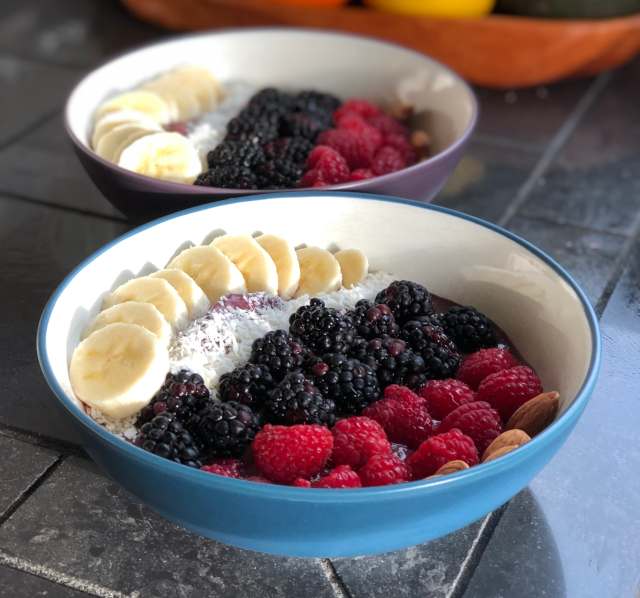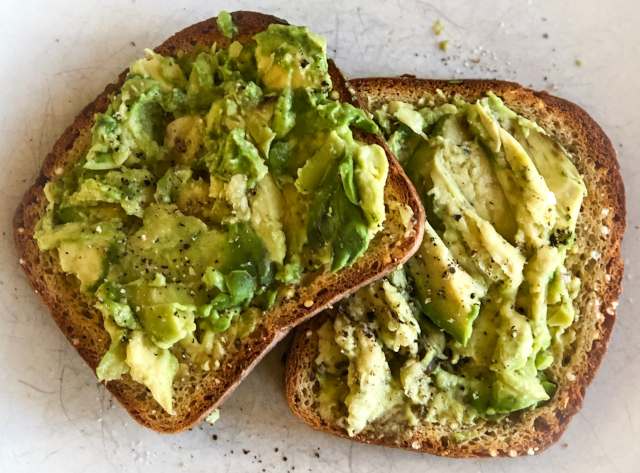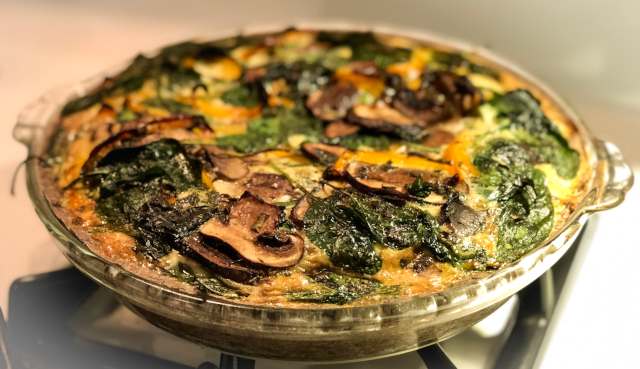
The last few months has thrown many of us off our game. As we’re re-establishing normal patterns, it helps to “get ahead” on as much as we can. Taking a few moments now to make things easier for ourselves in the future can pay off not just in productivity later on, but in time to relax.
One of the biggest changes we’ve experienced is that a lot of us are going to the supermarket much less frequently. It’s become one of those things that we have to do but that’s hard to enjoy, given all the things we have to do to make it work. As long as you’re buying food for longer periods of time when you do go, one of the best things you can do for yourself is take on a bit of meal planning.
The accountability the Whole Life Challenge provides in how we eat (and all the 7 Daily Habits) is the perfect tool to help support taking on better nutrition habits, like meal planning.
If you don’t consider yourself a planner, you may not see the benefits of meal planning. Do you imagine it would restrain your spontaneity or limit your creativity? Does the idea of organizing weekly plans feel overwhelming? Are you struggling to know where to begin?
My family has been meal planning every week for well over a year. We’ve done this with two specific goals in mind:
- To cut our family of fours’ food spending by 25%.
- To develop a habit of healthier and vegetable-forward eating.
I can assure you that we’re far more imaginative home cooks now than we were before we began — and we’ve experienced additional and welcome benefits from this process, too.
Below are the five benefits of meal planning that we immediately experienced.

1. Saving Money
Our family of four was spending over $2,000 per month, nearly evenly split between restaurants and groceries. We set an audacious goal to cut our monthly food spending by 25% by cutting our restaurant spend in half while holding our groceries budget steady at $1,000 per month. While most of us don’t have to worry too much about slashing restaurant budgets these days, reducing spending anywhere we can is a goal that many have.
We had to learn to make better choices at the grocery store. A cost-saving benefit to meal planning was taking leftovers to work, effectively saving $15 per day on expensive lunches downtown.
Within the first month of meal planning we reduced our food spend by $500.

2. Stress Reduction
Our family used to have a 5:00pm ritual, “What do you want to eat for dinner?” We would try to vote and inevitably, we couldn’t come to an agreement. We’d end up with burritos or Chinese food or pizza delivery at least three nights per week.
This was obviously impacting our budget (see above), but it also had a negative impact on how we interacted as a family. Establishing a written meal plan and making it available via a shared Google Doc ended our nightly battles over what to eat for dinner.
We’re now able to spend time talking with each other about our day, current events, and family plans — at least, as much as is possible with an eight- and fourteen-year old!

3. Saving Time
Another drawback of our old 5:00pm ritual was that it led us to the grocery store three to four days per week, often just to pick up ingredients for whatever recipe we’d agreed to cook for that evening. The fact we live in an urban area added additional time to those weeknight grocery store runs, with crowded parking lots and long checkout lines. With all the recent changes to that particular part of life, not planning ahead could cut even deeper in our time (and peace of mind).
Leftovers for lunch also help to save time; we simply pack individual servings into plastic-ware as we’re cleaning up from dinner, making it easy to “grab and go” in the morning.
We estimate that by moving to weekly meal planning, we’ve gotten back up to three hours of our lives each week.

4. Waste Reduction
There’s research available on how much food Americans waste on average every day; one study published in PLOS ONE by researchers at the US Department of Agriculture found that U.S. consumers wasted nearly one pound of food per person per day over an eight-year period ending in 2014. Fruits and vegetables, dairy, meat, and grains were among the top categories of food wasted.
We can’t speak for all Americans, but we did find that our family has successfully reduced the amount of food we waste by meal planning. We end our weekly meal plans on Fridays, and generally schedule to go to a restaurant for our Friday evening family dinner.
It’s so satisfying to see our fridge nearly empty of perishable goods every Friday afternoon, with just a few items left to sustain us until we complete our weekly grocery run on Saturday.

5. Feeling Healthier
This benefit is highly personal. My family now knows everything we’re consuming and putting into our bodies because we’ve created our meal plan and we’ve selected our food from the grocery store. As things stand these days, health is an even more important goal than ever for most people. What we eat every day is our first line of defense against sickness.
In addition to our nutrition, incorporating a regular exercise routine into a planful week of meals has us all feeling amazing, physically and emotionally.
The Real Bonus When It Comes to the Benefits of Meal Planning
Don’t worry – you can meal plan and still be spontaneous! Occasionally we choose to throw our plan out the window and “go rogue” at a restaurant or friends’ house.
And, we can easily adapt our planning to allow for special occasions. This January, we created four weeks of more calorie-conscious diets because we’d had a lot of fun at the end of the year (to the tune of one pound per week of weight gain over a six-week period). And, you know what? That was all totally okay and actually part of the long-term plan.
The most important advice I can give you is to create a meal planning routine that works for your family and your lifestyle!
P.S. If you’re ready to give meal planning a shot, I share five tips for making a weekly meal plan right here.



































